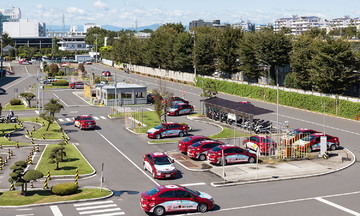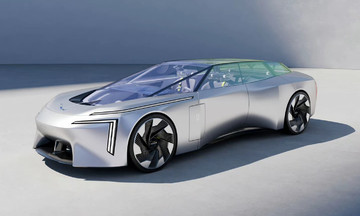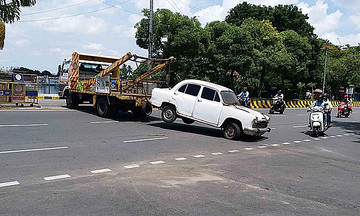What should have been a cherished family summer vacation this year turned into a stressful ordeal, largely due to the 5 hours I spent each day driving on Vietnam's expressways. Departing from Ho Chi Minh City, my family embarked on a road trip along the central coast, a 5-day journey planned to include Phan Thiet, Tuy Hoa, and Quy Nhon before returning to Ho Chi Minh City. Each day, both going and returning, I averaged 5 hours behind the wheel, mostly on expressways and highways.
Initially, I envisioned a fantastic experience, reminiscent of my cross-country road trips in my younger days. However, the reality was far from my expectations. After 5 days, instead of exhilaration, I felt exhausted, stressed, and even traumatized. Anyone who has driven on Vietnam's expressways knows it's not simply a matter of "hitting the gas and going straight." Each kilometer presents a confrontation with a variety of drivers: lane weavers, tailgaters, sudden cutters, drivers signaling left but turning right, reckless container trucks, speeding cars, and even motorbikes appearing on the emergency lane as if out of thin air.
Driving on these roads felt like participating in a high-speed survival game. While the speed limit is 120 km/h, some cars seemed to be competing in an F1 race, while others sluggishly occupied the left lane, refusing to yield. I had to brake sharply numerous times due to vehicles abruptly cutting in front of me or changing lanes without signaling. My heart pounded, sweat dripped onto the steering wheel, my grip tightened, and my eyes remained glued to the road.
Before the trip, I thought, "5 hours a day? No big deal." But 5 hours of driving in a state of high alert, constantly dealing with hazardous situations, is far more tiring than a typical workday. Long-distance driving isn't merely sitting and steering; it requires continuous observation, quick reactions, distance estimation, speed control, blind-spot monitoring, and even anticipating the intentions of other drivers. A moment of inattention could jeopardize my family's safety.
Each evening, while my wife and children eagerly explored the cities and enjoyed dinner, I just wanted to collapse on the bed. One day, they went to the beach at 5 am, but I was still groggy from a sleepless night, plagued by the near-collision with a container truck that had forced me off the lane on the expressway the previous day.
Undeniably, the quality of Vietnam's expressways is improving. The Ho Chi Minh City - Long Thanh - Dau Giay Expressway, and newer routes like the Phan Thiet - Dau Giay, significantly reduce travel time. However, infrastructure is only one part of the road safety equation. The other, and more concerning, part is driver behavior.
Throughout the journey, I witnessed numerous preventable incidents: trucks in restricted lanes, cars driving against traffic at U-turns, buses stopping abruptly on highways to pick up passengers, and countless drivers failing to signal lane changes. Many view yielding as a sign of weakness, rather than a mandatory rule.
After this trip, I questioned whether I would ever embark on another long-distance road trip. For now, the answer is no, at least not under current conditions. Driving long distances in Vietnam is too dangerous and tiring without a co-driver or familiarity with local roads and traffic patterns. While self-drive tourism is often promoted for its freedom and flexibility, true freedom must be accompanied by safety, which requires robust infrastructure and a civilized traffic culture.
I don't oppose traveling by car, but after my experiences in 6/2024 and 7/2025, I want to offer a realistic perspective. This mode of travel isn't suitable for everyone, especially given the inherent risks of Vietnam's traffic conditions.
This article isn't a complaint, but a plea for improved road safety. It's not just about signs, cameras, or smooth roads; it's about the alertness and consideration of every driver. I hope that when my children grow up and take their own road trips, they won't face the same "invisible battles" I endured.
Thu Sang










